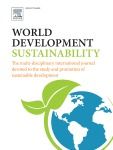The Nature Conservancy Science
@science.nature.org
2.5K followers
39 following
88 posts
@nature.org's science network working to optimize science and help TNC advance towards the 2030 goals.
Posts
Media
Videos
Starter Packs
Pinned
Reposted by The Nature Conservancy Science
Reposted by The Nature Conservancy Science































